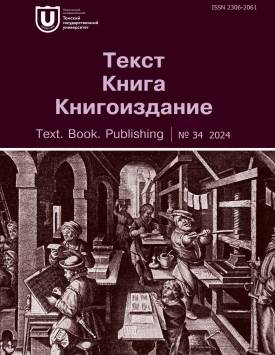Author’s strategies of the transformation of a genre: From a wartime diary to fiction and documentary prose
This article aims to discuss the history of the text of the front-line diaries and military stories of Georgiy Sennikov, a submariner of the Northern Fleet, as the history of a single “monotext” in the aspect of the transformation of the genre of a wartime diary into fiction and documentary prose. The research aims to single out the stages of the author's work on the text from the draft of the front-line diary to the almost uncensored story Malyutka Goes to Sea, written during perestroika and not published during the author's lifetime; to determine the author's strategies for the transformation of the text; to conduct a comparative analysis of the texts and to understand the logic of changes and edits to the text made by the author; to examine the influence of political and ideological public discourse on the design of the author's idea; to describe the strategy of making diary entries subordinated to linear time an aesthetically complete work with a structured composition; to determine the features of presentation, construction and artistic decoration of the images. This research is important because the philological and historical-anthropological study of new ego-documents and previously unpublished literary texts on the war is an important resource for understanding the present and social prognostication. The novelty of the research lies in the fact that new sources are introduced into scholarly discourse - ego-documents and literary texts of Georgiy Sennikov, a front-line soldier, navigating electrician of submarines M-107 and M-119. The combination of the literary comparative-historical method, the biographical approach, and the historical principle of the priority of the source allows us to look at the history of the Great Patriotic War through the prism of personal history, presented by the front-line soldier in figurative forms. A comparative analysis of the surviving texts written by the front-line submariner was carried out from the point of view of the history of the text and in the aspect of the poetics of the genre. As a result, it is proved that Sennikov is the author of one work, a “monotext”, on which he worked all his life. Three author's strategies of the transformation of ego-documents into fiction and documentary prose are determined. The first strategy is connected with the transformation of the text depending on the changes in the political situation in the country. First of all, it is necessary to mention the influence of political and ideological public discourse on the design of the author's idea and on the logic of removing or adding new episodes to the text. The second strategy of the transformation of the diary text into fiction and documentary prose is associated with its restructuring according to the laws of the composition of a work of art: subordination of the diary's linear time as a chain of events happening in time to non-linear qualitative time, which makes you feel the depth of life, even its transcendence. The transfer of events and characters in time creates the emotional center of the work, its culmination. The third strategy is the transformation of the images in the diary into artistic images built in accordance with the Soviet cultural archetypes. The authors declare no conflicts of interests.
Keywords
author's strategies, history of text, genre, Great Patriotic War, wartime diaries, documentary proseAuthors
| Name | Organization | |
| Postnikova Yekaterina G. | Nosov Magnitogorsk State Technical University | ekaterinapost@mail.ru |
| Zaitseva Tatiana B. | Nosov Magnitogorsk State Technical University | tbz@list.ru |
References

Author’s strategies of the transformation of a genre: From a wartime diary to fiction and documentary prose | Tekst. Kniga. Knigoizdanie - Text. Book. Publishing. 2024. № 34. DOI: 10.17223/23062061/34/9
